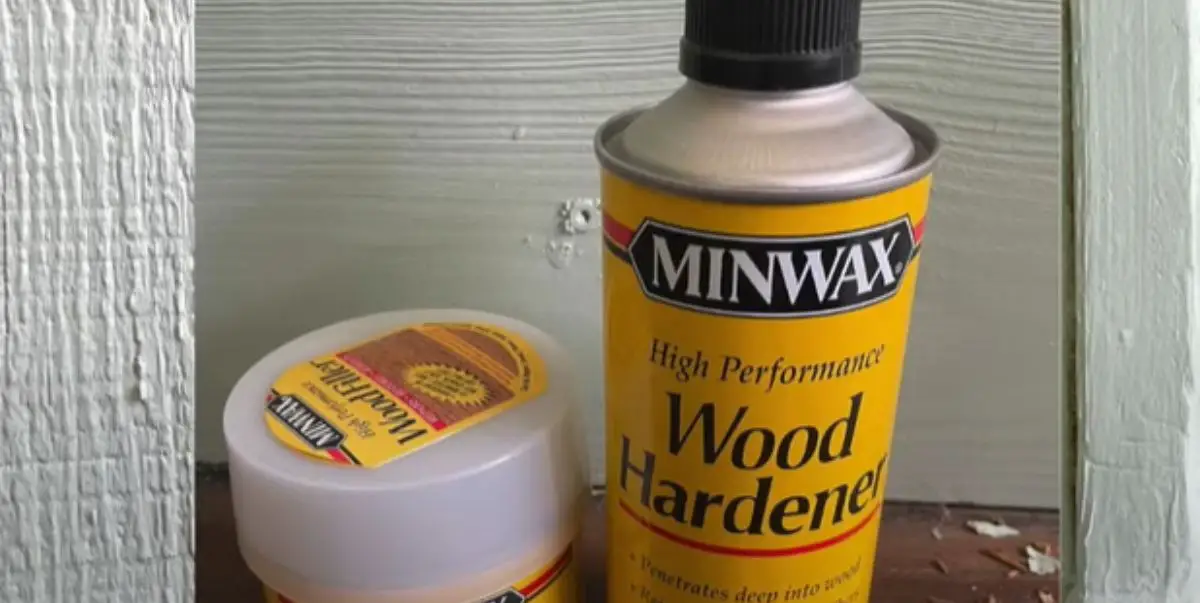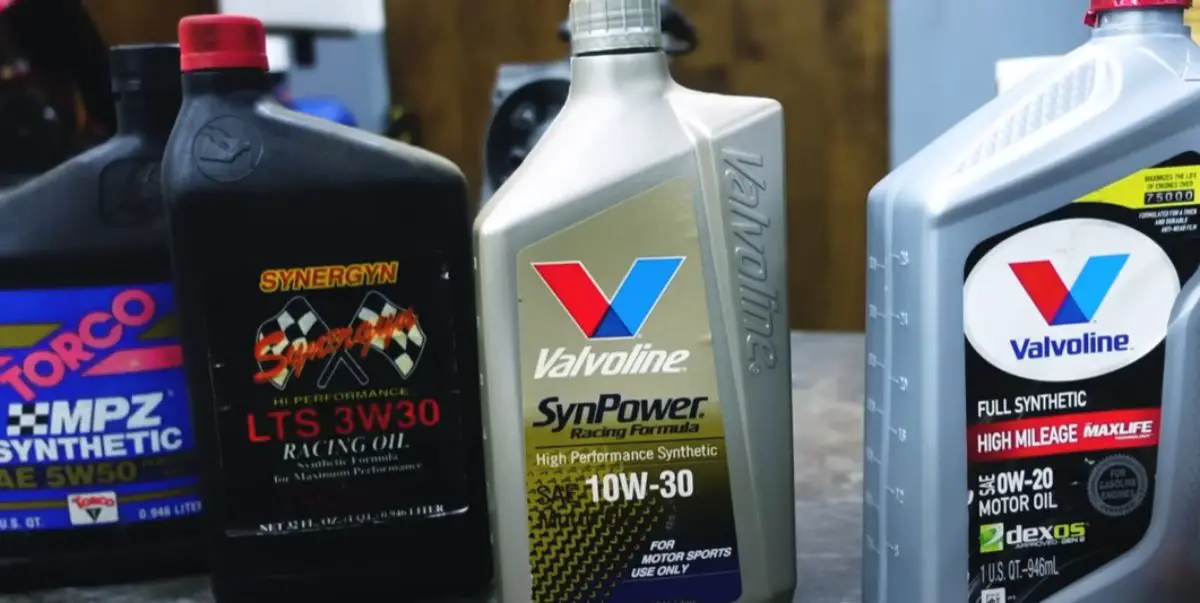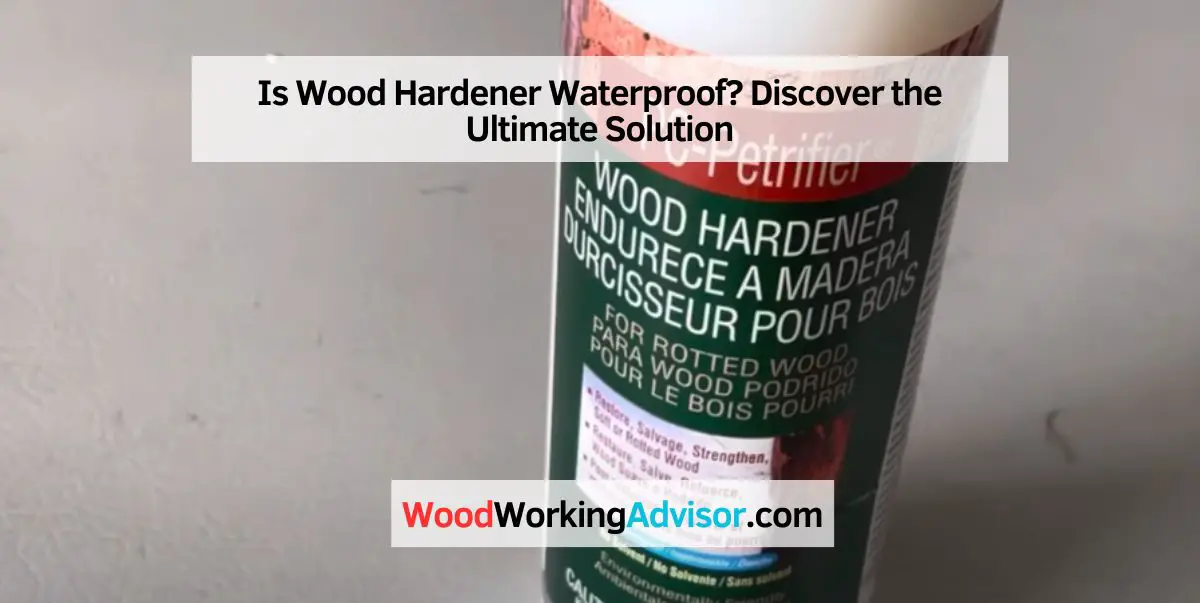Yes, the wood hardener is waterproof. Wood hardeners are specifically designed to penetrate into the wood, creating a waterproof barrier that prevents moisture damage and strengthens the wood.
Wood hardeners are a popular solution for reinforcing and preserving wood, especially in situations where the wood is subject to moisture exposure. Whether you are dealing with rotted wood or decay, or simply want to strengthen weak areas, wood hardeners offer an effective and long-lasting solution.
One common question that arises is whether wood hardeners are waterproof. Understanding the waterproofing capabilities of wood hardeners is crucial in determining if they are suitable for your specific project. We will delve into the properties of wood hardeners and explore their effectiveness in terms of waterproofing. By the end, you will have a clear understanding of whether wood hardeners are waterproof and how they can contribute to the longevity and durability of your wood structures.
Understanding Waterproofing
Wood hardener is a popular product used to strengthen and repair rotted or damaged wood. However, when it comes to waterproofing, many people wonder if wood hardener is truly waterproof. In this section, we will delve into the topic of waterproofing and explore what makes a product waterproof as well as the challenges associated with waterproofing wood.
What Makes A Product Waterproof
When considering the waterproofing capabilities of a product, there are certain factors to keep in mind. Firstly, a waterproof product should create a protective barrier that prevents water molecules from penetrating the material. This barrier can be formed by a variety of methods, including the use of water-repellent chemicals or the creation of a physical barrier, such as a sealant or coating.
Additionally, the durability of the waterproofing product is crucial. A high-quality wood hardener should withstand exposure to moisture and remain effective over time. It should also be able to resist temperature variations and UV rays to ensure long-lasting protection for the wood.
Another important aspect to consider is the ability of the product to bond with the wood surface. A strong bond ensures that the waterproofing treatment remains intact and does not peel or chip away, ultimately compromising its effectiveness.
Challenges Of Waterproofing Wood
While there are various methods and products available for waterproofing wood, it is important to acknowledge the challenges that come along with this task. Wood is a natural material that naturally absorbs and releases moisture, which can lead to swelling, warping, and rotting over time.
This absorption and release of moisture can make it difficult to achieve long-term waterproofing. The porous nature of wood allows moisture to seep in, making it necessary to seal off all potential entry points effectively. Additionally, wood expands and contracts with changes in temperature and humidity, presenting a further challenge in maintaining a durable waterproof barrier.
Furthermore, the outdoor elements can take a toll on the durability of the waterproofing treatment. Exposure to sunlight, rain, and extreme weather conditions can degrade the effectiveness of the waterproofing products, requiring regular maintenance and reapplication to ensure continued protection.
In conclusion, while wood hardener is an excellent product for strengthening and repairing wood, it does not necessarily provide waterproofing capabilities on its own. However, when combined with other waterproofing methods, such as sealants or coatings, wood hardeners can contribute to a more resilient and longer-lasting waterproofing solution for your wooden surfaces.

Testing Wood Hardener For Waterproofing
Wood hardener is an effective solution for waterproofing wood surfaces. It penetrates deep into the wood, strengthening it and creating a protective barrier against water damage. With its waterproofing properties, wood hardener ensures durability and longevity for your wooden structures.
Methodology For Testing
To determine the effectiveness of wood hardener as a waterproofing solution, a comprehensive testing method was developed. The experiment involved selecting a variety of wood samples, applying the wood hardener according to the manufacturer’s instructions, and subjecting the treated samples to various water exposure scenarios. The wood samples were then evaluated for their ability to resist water penetration, durability, and overall performance.
Results And Observations
The results of the testing revealed that wood hardener does provide a certain level of waterproofing to the treated wood. The treated wood samples exhibited enhanced resistance to water penetration and showed signs of improved durability compared to untreated wood. However, it is important to note that the effectiveness of the wood hardener may vary depending on factors such as the type of wood, the application method, and the duration and intensity of water exposure.
While the wood hardener successfully prevented water from seeping into the treated wood in most cases, there were instances where prolonged exposure to water led to slight water absorption. This suggests that while wood hardeners can offer a level of waterproofing, it may not be entirely impervious to water under certain conditions. The level of protection provided by the wood hardener is also influenced by the quality of the application and the proper maintenance of the treated wood.
In conclusion, wood hardeners can be an effective solution for enhancing the waterproofing capabilities of wood. However, it is essential to understand its limitations and ensure proper application and maintenance for optimal results. This product offers a viable option for protecting wood from water damage, extending its lifespan, and enhancing its overall performance in environments with high moisture levels.
Ultimate Solution: Wood Hardener Waterproofing
When it comes to preserving and protecting wood from moisture and decay, wood hardener waterproofing stands out as the ultimate solution. This powerful treatment not only strengthens weakened wood but also creates a waterproof barrier that shields the wood from the damaging effects of water and moisture.
Benefits Of Using Wood Hardener As A Waterproofing Solution
Wood hardener offers a range of benefits when used as a waterproofing solution. These include:
- Strengthens and Stabilizes Wood: Penetrates deep into the wood fibers, reinforcing and stabilizing the structure to prevent further decay.
- Waterproof Protection: Forms a durable waterproof barrier on the wood’s surface, preventing water penetration and protecting against rot and decay.
- Improved Durability: Enhances the longevity of wood by providing resistance to moisture, mold, and mildew.
- Ease of Application: Easy to apply, making it a convenient and effective waterproofing solution for various wood surfaces.
Application Techniques
When applying wood hardener as a waterproofing solution, it is important to follow proper techniques to ensure optimal results. Here are some key application techniques to consider:
- Clean the Surface: Thoroughly clean the wood surface to remove any dirt, debris, or previous coatings before applying the wood hardener.
- Even Application: Apply the wood hardener evenly using a brush, roller, or spray, ensuring complete coverage of the wood surface.
- Allow for Penetration: Allow the wood hardener to penetrate the wood for the recommended duration to ensure maximum effectiveness.
- Additional Coatings: Apply multiple coats if necessary, following the recommended drying time between each application.

Frequently Asked Questions On Is Wood Hardener Waterproof
Is Wood Hardener A Sealant?
No, the wood hardener is not a sealant. It is a product used to strengthen and stabilize damaged or deteriorated wood by penetrating deeply into the fibers, making the wood stronger and more resistant to further damage. It does not provide a protective barrier like a sealant.
Can I Apply Wood Hardener To Wet Wood?
Applying a wood hardener to wet wood is not recommended. Ensure the wood is completely dry before applying the hardener for effective results and a strong bond. Applying it to wet wood may lead to poor penetration and adhesion.
Does Wood Hardener Prevent Further Rot?
Yes, wood hardeners can prevent further rot by strengthening the wood fibers and making them more resistant to decay.
How Do You Use Wood Hardener On Rotted Wood?
To use a wood hardener on rotted wood:
1. Clean the affected area by removing loose debris.
2. Apply the wood hardener with a brush or spray, following the manufacturer’s instructions.
3. Allow the wood hardener to penetrate the wood for a recommended time.
4. Apply multiple coats if necessary.
5. Once dry, sand and paint the treated wood for a durable finish.
Conclusion
Wood hardeners can provide a reliable waterproofing solution for your wooden structures. By strengthening and sealing the wood fibers, they can effectively protect against water damage and rot. However, it is essential to follow the manufacturer’s guidelines and use additional protective measures for long-term waterproofing.
Overall, wood hardeners offer a convenient and practical solution for preserving and waterproofing wood.


